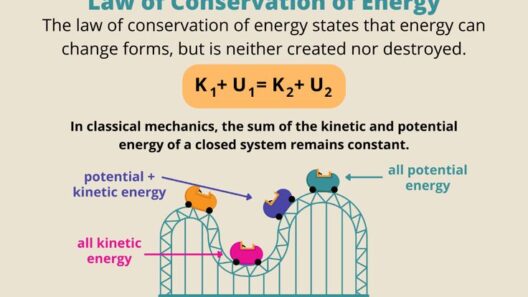In the contemporary ambiance of growing environmental concerns, the conservation of solar energy emerges as an exemplary strategy to combat climate change. As a plentiful resource, solar energy offers multifaceted benefits that not only enhance energy efficiency but also contribute to a cooler, healthier planet. Prioritizing solar energy conservation is not merely a trend; it addresses a pressing need for sustainable practices that yield long-lasting societal and ecological advantages.
Conserving solar energy is, at its essence, an exercise in harnessing the sun’s inexhaustible power. The sun emits an astonishing amount of energy, with just one hour of sunlight capable of fulfilling the world’s energy requirements for an entire year. This staggering fact alone underscores the importance of transitioning to renewable energy sources. The reliance on sustainable energy diminishes dependence on fossil fuels, which are notorious for their detrimental impact on the environment.
The ramifications of excessive fossil fuel consumption are catastrophic. The resultant carbon emissions contribute significantly to global warming, leading to rising temperatures and erratic weather patterns. By conserving solar energy, we can mitigate these adverse effects, reducing our carbon footprint and fostering a healthier atmosphere. The integration of solar technologies provides a panacea to address the escalating energy crisis while simultaneously curbing greenhouse gas emissions.
A principal advantage of solar energy conservation lies in its potential for decentralization. Traditional energy systems typically depend on centralized power plants, which are susceptible to outages and inefficiencies. Contrarily, solar energy permits localized generation and utilization. This decentralization engenders resilience within energy systems, ensuring that communities can generate their electricity and fortify against supply disruptions. The distributed nature of solar power facilitates energy independence, empowering individuals and communities to be self-sufficient.
Moreover, the economic implications of solar energy conservation cannot be overlooked. The investment in solar technologies stimulates job creation across various sectors. From manufacturing solar panels to installation and maintenance services, the solar industry has burgeoned into a significant employer. This shift not only bolsters local economies but also fosters a paradigm shift towards sustainable development. As clean energy installations proliferate, so too does the demand for skilled labor, necessitating education and training programs to equip the workforce with essential skills.
The technological advancements in solar panels have considerably enhanced their efficiency and lowered associated costs. The proliferation of photovoltaic systems illustrates the strides made in harnessing solar energy. Innovations in materials, such as bifacial solar panels and thin-film technology, have rendered solar energy more accessible and appealing for widespread adoption. As these technologies mature, their integration into homes and businesses becomes increasingly feasible and economically viable.
Furthermore, the intersection of solar energy conservation and energy storage technologies marks another frontier of opportunity. Energy storage systems, such as batteries, allow for the capture and retention of solar energy produced during peak sunlight hours. This stored energy can be utilized during periods of low sunlight, effectively addressing the intermittency challenges associated with solar power generation. Such advancements ensure a more consistent and reliable energy supply, fortifying the case for solar energy as a primary energy source.
Transitioning towards solar energy conservation also engenders community engagement and education. As individuals become cognizant of their energy consumption habits, they are more likely to seek out solar solutions. Community solar projects provide an avenue for collective action, allowing neighborhoods to collaborate in harnessing solar power. These initiatives enhance social cohesion, encourage environmental stewardship, and foster a culture of sustainability.
Additionally, solar energy conservation plays a pivotal role in safeguarding biodiversity. The move away from fossil fuels diminishes habitat destruction associated with mining and drilling activities. Ecosystems that might otherwise be disrupted by traditional energy production can thrive under a renewable energy paradigm. By conserving solar energy, humanity takes a significant step toward maintaining ecological balance and preserving the planet’s rich biodiversity for future generations.
Global attention to solar energy conservation is imperative in the face of looming environmental crises. Governments and policymakers must prioritize the development and implementation of policies that incentivize solar adoption. Subsidies for solar installations, tax credits, and rebates can lower the barrier to entry for many individuals and businesses, amplifying the move towards renewable energy sources. Government-backed research and development initiatives can catalyze innovation in solar technologies, enhancing efficiency and sequencing advancements that make solar energy more accessible.
Moreover, the establishment of international partnerships aimed at advancing solar technology further solidifies the importance of global collaboration in combating climate change. The sharing of knowledge, expertise, and resources between nations can expedite the transition to solar energy and create a unified front against environmental degradation. In this global effort, even small steps taken by individual nations contribute substantially to the collective goal of a sustainable future.
In conclusion, conserving solar energy is a critical pursuit for ensuring a cooler planet and sustainable human existence. The myriad benefits, from environmental conservation to economic growth and community engagement, advocate for a widespread embrace of this clean, renewable resource. As society grapples with the dire consequences of climate change, the imperative to harness solar energy stands as a bright solution for a more sustainable future. Through intentional action and collective commitment, the vision of a cleaner, healthier planet is not merely an aspiration but an attainable reality. The dawn of solar energy conservation heralds a new era, ripe with potential for both societal progress and environmental healing.








